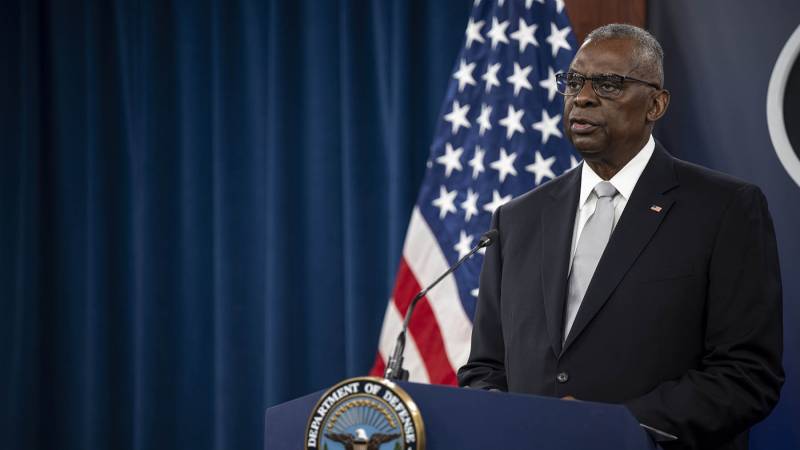
US Secretary Of Defence General (retired) Lloyd Austin has come out to apologise for his unexplained disappearance at a crucial moment when the US faced serious defence challenges, especially with the conflict in the Middle East.
“I want to be crystal clear: We did not handle this right. I did not handle this right,” Austin said in a statement as he surfaced a month after it emerged that he had to undergo a surgical procedure without informing US President Joe Biden.
“I should have informed the president about my cancer diagnosis. I should have also told my team and the American public, and I take full responsibility. I apologise to my teammates and the American people.”
His media briefing at the Pentagon on Thursday was his first public appearance after he had been admitted to the Walter Reed National Military Medical Centre in Washington on December 22.
Austin disclosed that his absence was due to surgery for prostate cancer, a common ailment in the United States, where more than 3 million cases are reported annually.
Recalling the events leading up to being admitted into the hospital, he told the media that he was transported by ambulance from his home in Northern Virginia to the Walter Reed National Military Medical Centre with complaints of fever, chills, leg pain and shallow breathing on January 1— 10, days after he had privately underwent surgery there to treat prostate cancer.
Neither President Biden nor most Pentagon staff were notified for days, a move for which Austin said he has since apologised directly.
Austin said that he remained hospitalised for two weeks.
His appearance before reporters came three days after his return to the Pentagon and nearly a week after three US soldiers were killed in a drone attack in northeastern Jordan.
Explaining the decision to keep information about his medical condition from key government officials, Austin said his first instinct was to keep the diagnosis private and that he had learned that serving in such a high-profile job, as a member of the president’s cabinet, means he has an obligation to be transparent.
While several reviews are underway into how the situation was handled, the defence secretary said he does not believe he created an environment where his staff would have decided it was best to keep such vital information from the White House.
Responding to Jordan drone strike
Biden had promised retaliation for the violence, which left dozens of other personnel wounded, and Austin reaffirmed that a response is coming.
“The president will not tolerate attacks on American troops — and neither will I,” he said during his prepared remarks.

